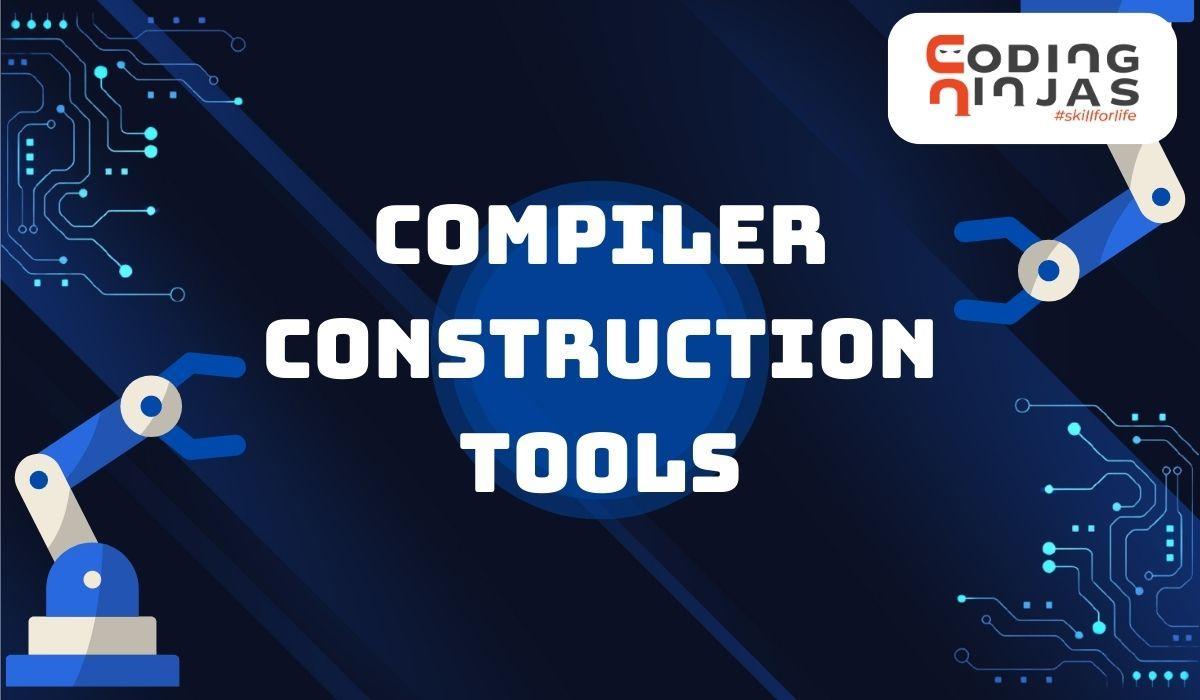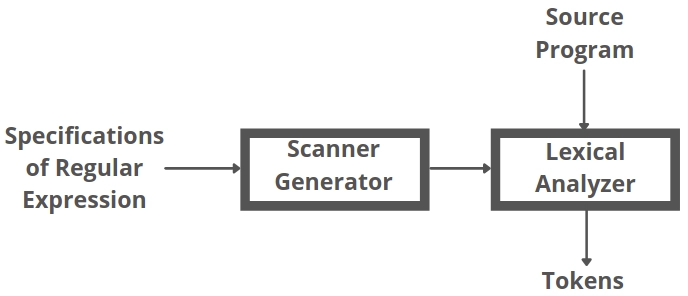Introduction
A compiler is computer software that transforms source code written in one computer language (the source language) into another computer language (the target language).
The compiler is used for programs that translate source code from a high-level programming language (e.g., C++, Python, Java, etc.) to a lower-level language (e.g., assembly language or machine code).
The whole compilation process is divided into different phases like Lexical Analysis, preprocessing, parsing, Semantic Analysis, code generation, and Code optimisation. There are some specialized tools present that help in the implementation of various Phases of Compiler known as Compiler Construction Tools.

Compiler Construction Tools
Compiler Construction Tools are specialized tools that help in the implementation of various phases of a compiler. These tools help in the creation of an entire compiler or its parts.
Some of the commonly used compiler construction tools are:-
- Parser Generator
- Scanner Generator
- Syntax Directed Translation Engines
- Automatic Code Generators
- Data-Flow Analysis Engines
- Compiler Construction Toolkits
Let’s learn about these tools one by one.
1. Parser Generator
Parser Generator produces syntax analyzers (parsers) based on context-free grammar that takes input in the form of the syntax of a programming language. It's helpful because the syntax analysis phase is quite complex and takes more compilation and manual time.
Example: EQM, PIC

2. Scanner Generator
Scanner Generator generates lexical analyzers from the input that consists of regular expression descriptions based on tokens of a language. It generates a finite automaton to identify the regular expression.
Example: LEX is a scanner generator provided by UNIX systems.

3. Syntax Directed Translation Engines
Syntax Directed Translation Engines take a parse tree as input and generate intermediate code with three address formats. These engines contain routines to traverse the parse tree and generate intermediate code. Each parse tree node has one or more translations associated with it.
4. Automatic Code Generators
Automatic Code Generators take intermediate code as input and convert it into machine language. Each intermediate language operation is translated using a set of rules and then sent into the code generator as input. A template matching process is used, and by using the templates, an intermediate language statement is replaced by its machine language equivalent.
5. Data-Flow Analysis Engines
Data-Flow Analysis Engines is used for code optimization and can generate an optimized code. Data flow analysis is an essential part of code optimization that collects the information, the values that flow from one part of a program to another.
6. Compiler Construction Toolkits
Compiler Construction Toolkits provide an integrated set of routines that helps in creating compiler components or in the construction of various phases of a compiler.




